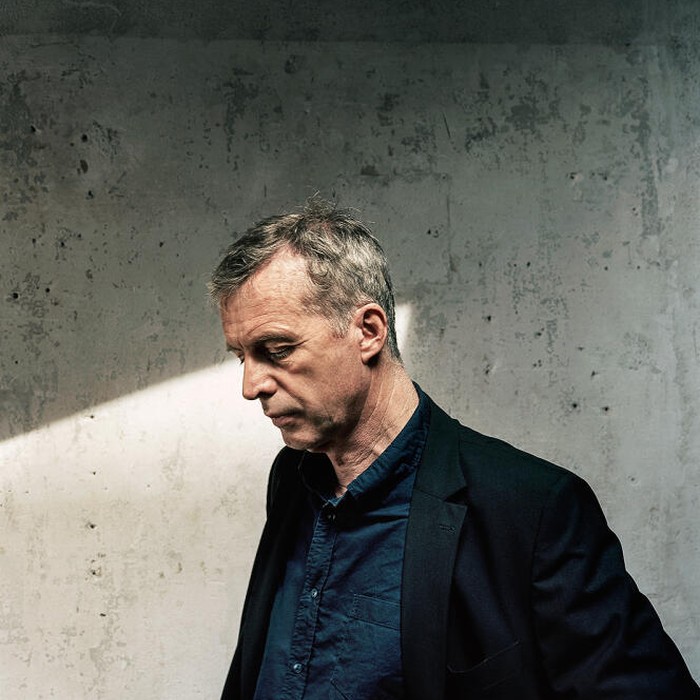
Artiste-professeur invité
2003 - 2004
Bruno Dumont
Born in 1958 in Bailleul (France)
He taught philosophy for several years before making about forty shorts, documentary films, advertisements and institutional films. Since then, he has made three feature-length films: 1996 : La vie de Jésus -- 1999 : L'humanité -- 2003 : Twenty nine palms.
"When directing movies, I seek novel forms of expression, ones that are able to convey the movement and temporality of our lives to a contemporary audience. Is it only a matter of rhythm, of harmony? I think back to Cézanne, to what he was doing, as he dismantled figuration, to his hundreds of bathers. Painted bathers, marvelous compositions, resolutely artificial, with their awkwardness and clumsy appearance, yet all of them seeking the furthest outreach of art: not so much a vision of the world, as art's expression of the essence of reality. Also, I often think about the beginning of the century's drive toward abstraction, and to the gazes that have looked in that direction since and created all these works.
All of these works of art -- are they not, like beings, beginnings that find their achievement in our gazes?
Where is my drive?
Shouldn't we, in turn, revolutionize the world, tirelessly rekindle our loves when our uselessness looms near? We feel it today because we have so little effect on anything, confronted by a world of complexity and order that restrains our fulfillment, our freedom, in order to benefit shapeless masses that alienate us. What are our gazes up to? To look at what? Are we worthy enough to want to live like that?
What does contemporary cinema have to do with the essence of reality? What, besides entertaining us, taking us away from this reality and making sure we forget about this reality!
But cinema should change the world, change our gazes.
True cinema films also need the gazes to become fulfilled. Gazes complete the beginnings that the works actually are. Art completes our possibility of being as men and women -- it wakes us to the enigma that we are. Works are the companions to our advances, they are convincing.
Life is modern, but what about us?
What shall we do with the beginning of the next millennium? Drive ahead, cut the tethers, fall overhead.
Bruno Dumont (Originally published in a newspaper, L'Humanité, in December, 1999)
